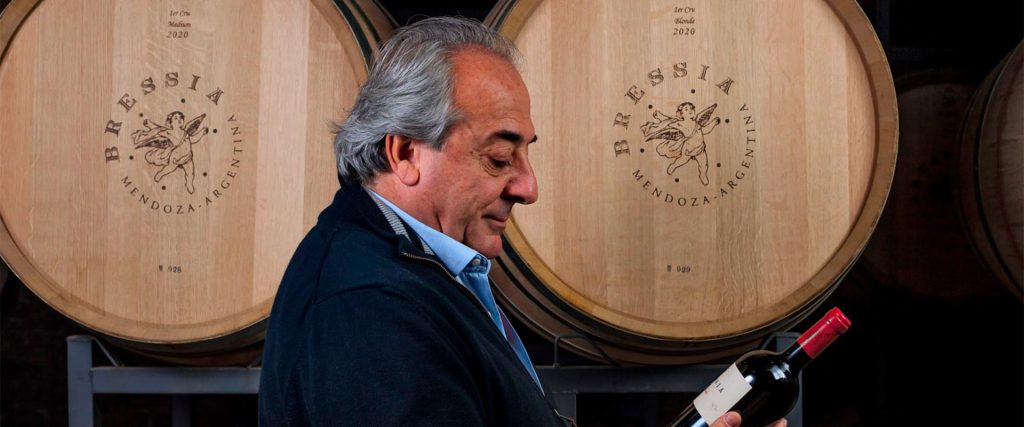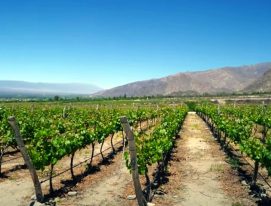In the early 21st century, a number of different factors combined to change the Argentine wine industry, and how it was regarded, forever. These included the appearance of boutique wineries opened by leading figures on the local scene.
These enterprises were aimed at supplying a new segment in the Argentine wine market: fine wines; exclusive, limited edition wines made by great winemakers such as Walter Bressia, whose winery Bressia Casa de Vinos is now celebrating its twenty second anniversary.
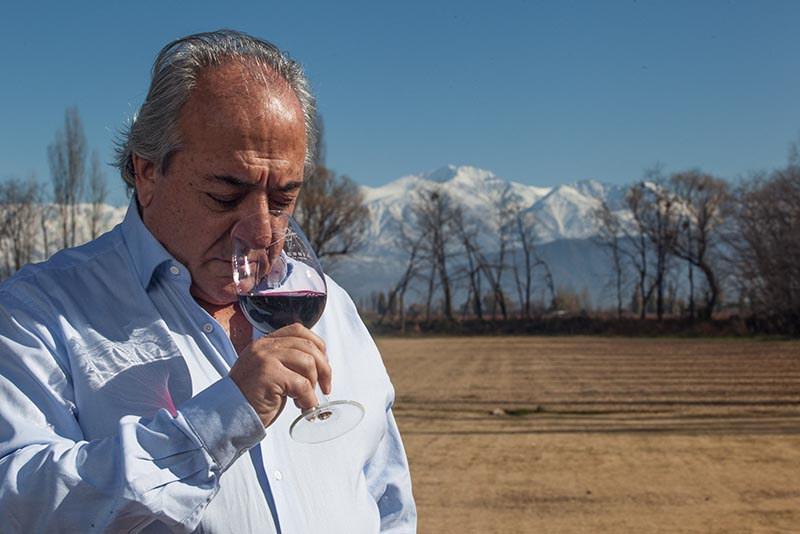
Bressia Casa de Vinos, a family dream
The oenologist Walter Bressia is the beating heart of a winemaking family. His name is synonymous with the transformation of winemaking in Argentina and his wines have always stood out for their “delicate, exclusive and transcendental” qualities.
Bressia has led a distinguished career: he trained at Nieto Senetiner, founded Viniterra and has won a number of prestigious awards. He is also a two-time president of Bodegas Argentinas and is currently their executive director and head of the oenotourism department.
For the past twenty years, he has been the owner of Bressia Casa de Vinos, a personal winery that stands out for the extremely high quality of its output and the unique reputation it has built up with each harvest.
“We started out in 2001, which was a difficult year for Argentina, but I had a lot of faith in local wine and the family business model. I knew that it worked elsewhere in the world and I wanted to replicate that. My experience helped us to hold our own alongside the economic might of the big wineries, allowing us to position our brand and find our place in the world of wine. We rapidly made a space for ourselves because the press, restaurant owners and wine stores supported the project.”
A portfolio of poetry-inspired labels
Over the years, Walter Bressia has built up a portfolio of major labels bearing his name that are greatly valued at home and overseas: “They’re contemporary with a classical profile.”
“I seek harmony, making sure the wood isn’t overbearing and the fruit comes through clearly, without flaws. If the Bressia name is associated with a product like that, then I’m happy. If customers in the store know what they’re getting when they see the name on the label, then mission accomplished,” says the oenologist.
When making the different lines in his collection, he first chooses the best grapes, which are then aged in barrels or foudres, enhancing their aging potential. The resulting wines are thus designed to evolve beautifully over time.
The family includes Última Hoja, an exclusive blend of the best of the winery’s barrels; Conjuro – a blend of Malbec, Cabernet Sauvignon and Merlot made with grapes from Tupungato; Profundo, the establishment’s first wine – a blend of Malbec, Cabernet Sauvignon, Merlot and Syrah; Piel Negra Pinot Noir, Del Alma Merlot Petit Verdot and the exquisite Lágrima Canela – a blend of Chardonnay and Semillón.
Bressia has also launched his first Malbec DOC Luján de Cuyo, a denomination of origin for which he campaigned for years when he was at Nieto Senetiner whose purpose is to protect the identity of Malbec from this major region in Mendoza.
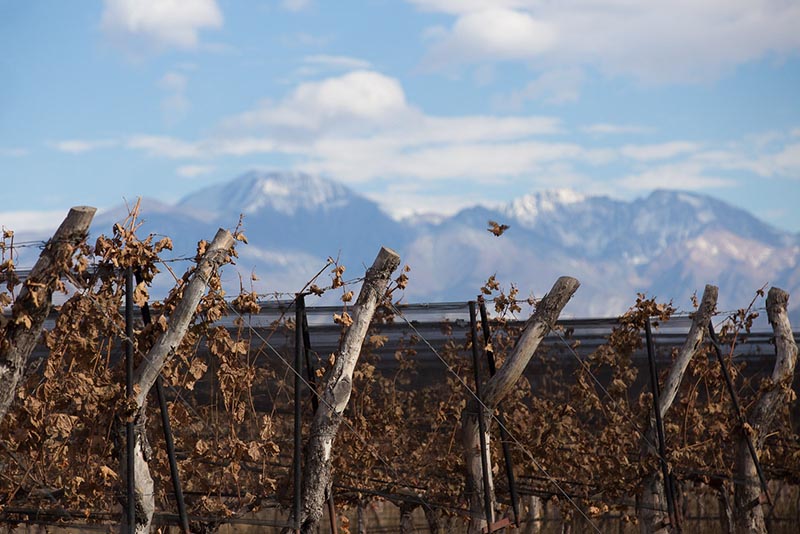
His most important creations include Saro, an homage to his father; Walter Bressia Grand Blanc, a great mountain white; Royale Brut Nature, a sparkling wine made using the champenoise method from Chardonnay and Pinot Noir grapes; and the grappa Alma de Uva.
Bressia Casa de Vinos also has two entry level lines: Monteagrelo, which features substantial varietals (Cabernet Franc, Malbec, Cabernet Sauvignon, Syrah and Chardonnay) and Sylvestra, a line of young varietals (Sauvignon Blanc, Torrontés, Malbec and Pinot Noir Rosé, and the sparkling wines La Vie en Rosé –100% Pinot Noir – and Extrasecco – a 100% Sauvignon Blanc made in the style of Italian Prosseco).
Looking to the future
Bressia are also working on a number of shared objectives inspired by business logic and experience, forever keeping an eye on the future.
In 2017 they added the Bressia Wine Bar to their estate in Mendoza. The modern space offers family wines served by sophisticated dispensers featuring the winery’s full range.
They also offer a range of different activities for tourists such as the Sunset option and a guided tour of the vineyards and installations.
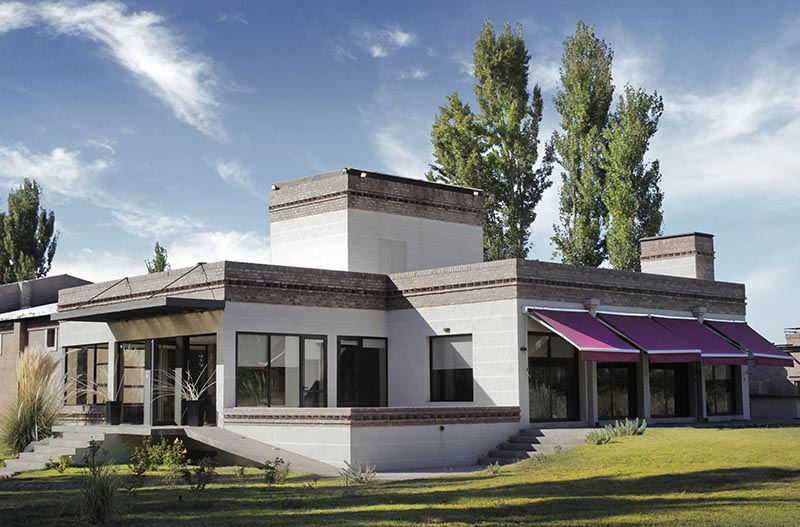
Today, Bressia and his partners are building a winery in Purmamarca (Jujuy) that will be run by Álvaro, his son, who is an agricultural engineer.
“I think that you can make great wines there given the potential of the soil, the climate and the altitude (7900 feet above sea level). These characteristics help us to produce healthier grapes with beautifully concentrated tannins and polyphenols resulting in wines of great chromatic and aromatic expressiveness and excellent volume in the mouth,” says Walter.
The winery is approaching these challenges with the same philosophy they’ve followed since the beginning: “Bressia Casa de Vinos has always striven for quality through new projects, creating exciting, elegant and memorable wines.”

